Note
Could you translate llegaste a tiempo by Jaime sabines
I can try yes
0 notes
Text
“Cuando vos y yo nos encontremos...”
Book: Cartas para Claudia (Letters for Claudia)
Author: Jorge Bucay

It wouldn't be good for you to get confused, this doesn't mean to believe oneself to be the center of THE world. It would be terrible for both of us when we find each other, for me to pretend to be the center of your world or worst yet, if I yielded you the place to be the center of mine....¡OH, NO!
When you and I find each other
We will be two worlds that find each other
We will be two universes in contact
You, one universe with a center within you
And me, a universe with a center within me
It will be wonderful!
When you and I find each other ...
#jorge bucay#translation#poemtranslation#poetry#Spanish poetry#poetic prose#finding eachother#soulamtes#love
9 notes
·
View notes
Photo

Saturnino Herrán was born on July 9, 1887, in Aguascalientes. His 1913 “La ofrenda” is considered a masterpiece of Mexican art.
1K notes
·
View notes
Photo



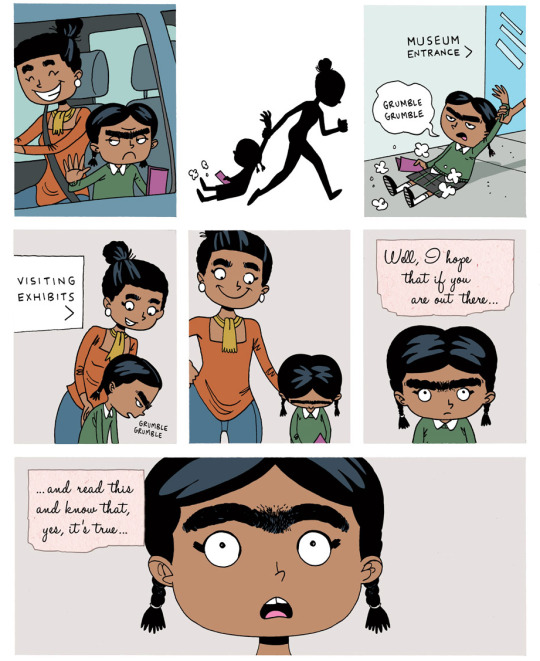

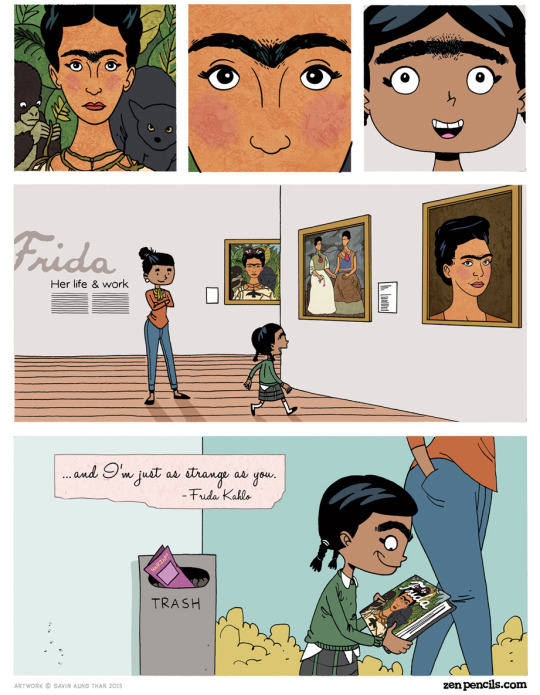
FRIDA KAHLO: Strange Like Me
741K notes
·
View notes
Photo

Regina Sactorum Omnium, Museo de la Basílica de Guadalupe, Cdad. de México. D.F.
524 notes
·
View notes
Quote
“Sometimes, I also run out of smiles
For you, there are other times
When I run out desire of writing to you.
But I love you, I hope you understand,
I always love you,
But there are times when there’s no warmth
In my arms
And my mouth does not know what to say…
But I love you, I always love you,
When I’m not good for you,
When you can’t stand me,
When I hate you, I love you.”
Alejandra Pizarnik (1936-1972)
(Distinguished Argentine poet)
12 notes
·
View notes
Photo
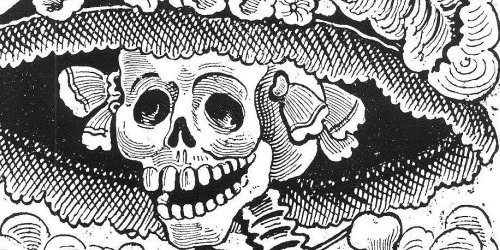
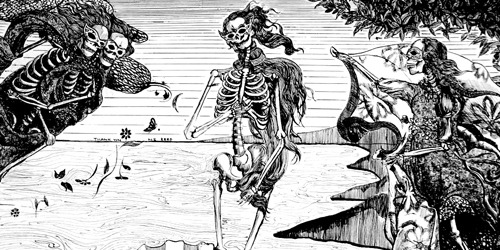
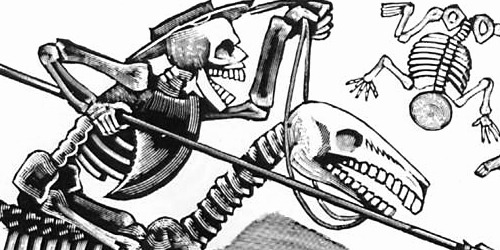
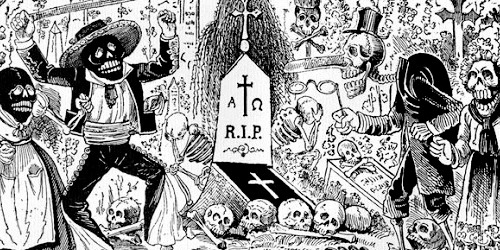

ART HISTORY MEME → [1/8] Artists
José Guadalupe Posada, 1852-1913
La Calavera Catrina (c. 1910-1913) | The Birth of Venus (1913) | La Calavera de Don Quijote (1905) | La Calavera de Don Folias y El Negrito (date unknown) | La Calavera Huertista (c. 1910)
Born to working-class parents of indigenous descent, Posada became one of Mexico’s greatest engravers and political satirists, and is considered by many to be the founder of modern Mexican art and aesthetics. He is best known for his calaveras, which he set in scenes of political satire. Posada’s artistic style and and expression for the political concerns of Mexico’s working classes greatly inspired the style of Diego Rivera, who later paid homage to Posada in his mural Dream of a Sunday Afternoon.
4K notes
·
View notes
Photo

4 notes
·
View notes
Photo

Me and My Parrots, Frida Kahlo. 1941.
12K notes
·
View notes
Note
Thank you so much for the translation of Jorge Luis Borges Learning poem! a spanish speaking friend of mine posted it on fb and auto translation apps and such didn't do the best job at conveying the poem as it should be, i guess it really was lost in translation! made my night :) Thanks again!
Oh my! I’m glad it was useful to you! I’ve been hindered a bit and lost a bit of confidence on my work hence why I haven’t updated (despite having plenty of material covered). Your words mean a lot to me.
3 notes
·
View notes
Photo

Diego Rivera (Mexican, 1886-1957), Flower Festival, 1925. Oil on canvas, 147.3 x 120.7 cm.
175 notes
·
View notes
Photo

#antonio gala#poetry#love#love quote#love poem#Spanish poetry#spanish-english#death#intimate enemy#heartbreak#life quotes#quotes#iberian poetry#translation#poemtranslation#translation wanderer#blanca zarsan
2 notes
·
View notes
Text
Sorry for the long break. But I hope to be back. Medical internship has gotten quite a toll on me.
0 notes
Photo
ART HISTORY MEME || [3/8] artists: Frida Kahlo (Mexican, 1907-1954)
"I used to think I was the strangest person in the world but then I thought there are so many people in the world, there must be someone just like me who feels bizarre and flawed in the same ways I do. I would imagine her, and imagine that she must be out there thinking of me too. Well, I hope that if you are out there and read this and know that, yes, it’s true I’m here, and I’m just as strange as you".





4K notes
·
View notes
Photo

Gabriel García Marquéz (6 March 1927 – 17 April 2014), novelist, short-story writer, screenwriter and journalist, known affectionately as Gabo throughout Latin America.
For those of us who read you and for those that will read you, Gabo, you will remain engraved in our hearts, your words embedded in our memory forever. You are one of the great ones, sir!
LIST OF WORKS
Novels
In Evil Hour (1962)
One Hundred Years of Solitude (1967)
The Autumn of the Patriarch (1975)
Love in the Time of Cholera (1985)
The General in His Labyrinth (1989)
Of Love and Other Demons (1994)
Novellas
Leaf Storm (1955)
No One Writes to the Colonel (1961)
Chronicle of a Death Foretold (1981)
Memories of My Melancholy Whores (2004)
Short story collections
Eyes of a Blue Dog (1947)
Big Mama's Funeral (1962)
The Incredible and Sad Tale of Innocent Erendira and Her Heartless Grandmother (1978)
Collected Stories (1984)
Strange Pilgrims (1993)
Non-fiction
The Story of a Shipwrecked Sailor (1970)
The Solitude of Latin America (1982)
The Fragrance of Guava (1982, with Plinio Apuleyo Mendoza)
Clandestine in Chile (1986)
News of a Kidnapping (1996)
A Country for Children (1998)
Living to Tell the Tale (2002)
Who is Gabo?
5 notes
·
View notes
Photo

#Julio Cortázar#julio cortazar#latin american literature#love#love poem#love poetry#poem#poesia#love quote#love quotes#poemtranslation#poetic prose#translation#translation wanderer#blanca zarsan
9 notes
·
View notes
Link
(traduccion al español: Karem Molina Escobar) from Portuguese
The first symptom of the process of killing our dreams is the lack of time. The busiest people I have known in my life always had enough time to do everything. Those who did nothing were always tired and paid no attention to the little amount of work they were required to do, constantly complaining about how the day was too short. The truth is, they are afraid to fight the Good Fight.
The second symptom of the death of our dreams lies in our certainties. Because we don’t want to see life as a great adventure, we begin to think of ourselves as wise and fair and correct in asking so little of life. We look beyond the walls of our day-to-day existence, and we hear the sound of spears breaking, we smell the sweat and the powder, and the countless falls and the thirst of victory in the eyes of the warriors. But we never see the delight, the immense delight present in the hearts of those who are engaged in the battle. For them, neither victory nor defeat is important; what’s important is only that they are fighting the Good Fight.
And, finally, the third symptom of the passing of our dreams is peace. Life becomes a Sunday afternoon; we ask for nothing big, and we cease to demand anything more than we are willing to give. In that state, we think of ourselves as being mature; we put aside the fantasies of our youth, and we seek personal and professional achievement. We are surprised when people our age say that they still want this or that out of life. But in fact, in the deepest corner of our hearts, we know that what has happened is that we have renounced the battle for our dreams – we have refused to fight the Good Fight.
When we renounce our dreams and find peace, we go through a short period of tranquility. But the dead dreams begin to rot within us and infect our entire life.
We become cruel to those around us, and in the end, we direct this cruelty against ourselves. That’s when illnesses and psychoses arise. What we sought to avoid in combat – disappointment and defeat – becomes the single legacy of our cowardice. And one beautiful day, the dead and rotten dreams make the air difficult to breathe, and we begin to wish for death. It’s death that frees us from our certainties, from our jobs, and from that terrible peace of our Sunday afternoons.
in The pilgrimage (1987)
#paulo coelho#the pilgrimage#dreams#life#the killing of our dreams#dissappointment#giving up#don't give up#life quotes#european literature#portuguese#never give up#never gonna give you up#translation#translation wanderer#blanca zarsan
10 notes
·
View notes